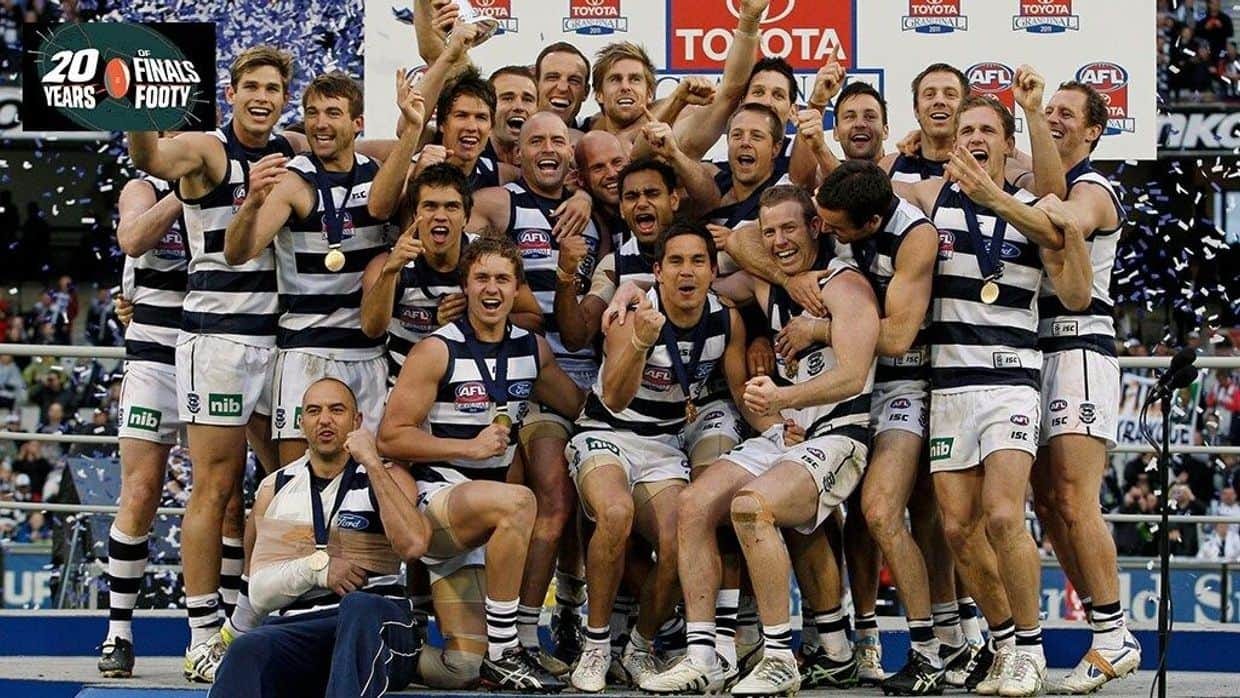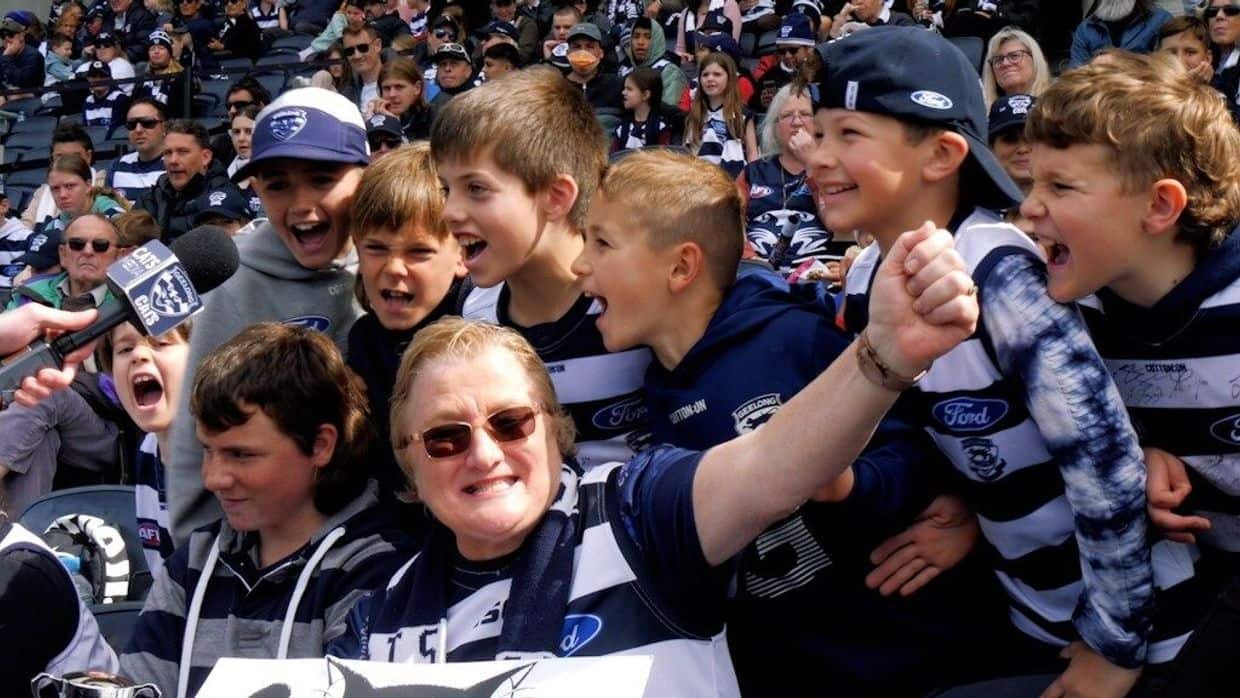A premiership in your first year is something to behold.
The Geelong cricket club has been waiting thirty years; since its inception. Players, past and present, lie in bed wishing; coaches and administrators stare at the ceiling dreaming of deliverance.
Yet, when Chris Scott delivered this coaching rarity in his first season at Geelong football club in 2011, there was chastisement, not adulation. It was as if he had stolen the town’s crown jewels. It somehow didn’t belong to him, similar to an unexpected inheritance from a distant aunt, something subconsciously you feel you should give back, but of course, don’t.
SpeakingNick is a reader-supported venture. Free and paid versions are available. The best way to support me is by taking out a paid subscription.
So here’s the puzzle. Transporting back to 2011, what did Chris Scott do wrong, what could he have done differently, and what else was there to do?
In short, all that transpired was one coach left, and another came in. It happens all the time, perhaps not as frequently as in other sports; still, AFL is no different in hiring and firing coaches. Coaches come, and they go.
That would be a conclusion reached too soon; there must be more to it than just that.
The other coach in question is Mark ‘Bomber’ Thompson. Thompson exited the stage door, and Chris Scott, well, he marched through the front. Scott still had a measure of his enforcer tendencies to call on.
Scott’s fledgling coaching credentials matched the job description, and you could argue that Thompson and Geelong’s partnership had reached its natural conclusion. It’s an idiom but true — being in the right place at the right time is not a sin.
Previously, Scott had traversed the continent — ending up in Fremantle as an assistant to Mark Harvey after his playing career finished at Brisbane. There would be a discussion on where his initial coaching education started — as a senior player under the auspices of the ebullient Leigh Matthews at Brisbane; or Fremantle, under the watch of Mark Harvey. Either way, he emerged as a rookie coach who was — in the right place at the right time.
So why did the Geelong faithful rebuff Scott’s arrival? I believe the facts are not in the detail, but more in the fabric of the locale he came too.
Geelong, as a region, can be regarded as a heavy lifter. The city has been, and is, a critical transportation hub — by port, rail and road, servicing the agricultural needs of the Western District. Labour intensive industry prevails. The Ford factory, now closed, has been intrinsically linked to the football club for years — the partnership will reach its centenary in 2025. No doubt it was full of bloody tough, no-nonsense, individuals, who endured lengthy work weeks, and even longer weekends.
Education, in the main, is delivered through elite, esteemed private schools, where some students still board! Parents seem more willing to transpose themselves in Geelong, working their professional jobs remotely, and then the younger single professional tribe seems content with its nightlife and broadband speeds. And, of course, their Melbourne fix is met by taking the ‘rattler’ to town — which no longer rattles. All that has a paradoxical feel to it when you delve into the real underbelly of Geelong.
So, you have these two contradictory classes that co-exist. The old are reluctant to relinquish a custodial hold on what they believe to be theirs. Football, through these eyes, is still very much a weekend pursuit for both them as spectators and what they expect from ‘their’ players. Yes, ‘their’ players — smothering, helicopter-style parenting is in play here. This tribe separates players from coaches with a clear leaning toward the player.
Then, to the transient tribe, which is more liberal in its views. Chris Scott will be on their radar without them knowing every last detail, and they are unlikely to know his whiteboard tendencies. However, when they look at his holistic achievements at Geelong, I suggest they afford him a good deal of approval — this is a tribe that prefers to inhabit corporate boxes over a seat in the outer with a gut-wrenching southerly coming straight at you. Bear that in mind. This tribe has no clear preference when it comes to players and coaches.
Subcultures can be both enduring and confusing, a place in the world with its own manners and vocabulary; a place with its own rules and governance. Internal rhythms and status structures resonate within and confuse those on the periphery. Who does look down on whom and why, further, who is venerated, and which tribe holds sway. There are a myriad of reasons that Chris Scott is held on the periphery in Geelong. Circling back, though, do we think this keeps him awake at night? I don’t think so.
Enjoying the read? If you feel like it, I’d love if you’d share this post with your friends!
We’re not in the business of plainly listing achievements here. I would hope we look a little deeper. However, an overview of Geelong’s play since Chris Scott arrived is worth consideration. Especially given the argument I am putting forward.
To date: Chris Scott, the coach, has 199 wins from 285 starts, giving him an 80% win rate. In his 12 seasons as head coach, Geelong has only missed the finals once (2015) — a supporter cannot ask for much more — those are the distilled facts. His win-loss percentage ranks alongside the world's finest coaches. And, still, I can hear the bigoted tribe banging their drums — 'his finals record is deplorable in comparison to his regular-season record'. Hello, surely, your players have to take some responsibility here!
With all that said, not too much of it matters.
If Geelong wins the premiership this coming Saturday, the players will be rightly lauded. Their season has been an example of clinical execution, this after some teething issues in the early going. New roles and methods were introduced, and the players have responded brilliantly; many are in career-best form, and the development of the younger brigade has been hugely encouraging.
So was this a tsunami of sorts? Did the stars and planets align over the Western District? Well, no is the considered answer. This is an example of considered coaching, and managing. I believe coaches to be more managers than coaches, specifically at this end of the skill spectrum. Chris Scott has managed the 2022 season to perfection. Almost.
Standing between Scott and his second premiership is a resourceful foe. Sydney will test Geelong’s resilience; their coach, John Longmire, will keep Chris Scott honest. Scott has the magnets; he knows where he wants them; he must stay true to his course, not waiver, and, most importantly, continue to trust his players.
Whether the doubters trust him — and his like — is neither here nor there. Scott is happy to be on the periphery, where he might belong; you could say, what is for sure, though, he will be leaving Geelong Football Club in a better place. And when the time comes, he will leave through the front door.
As always, thank you for being here.











At last some measured clarity on a superb contribution to “OUR” footy club.
Thanks Nick